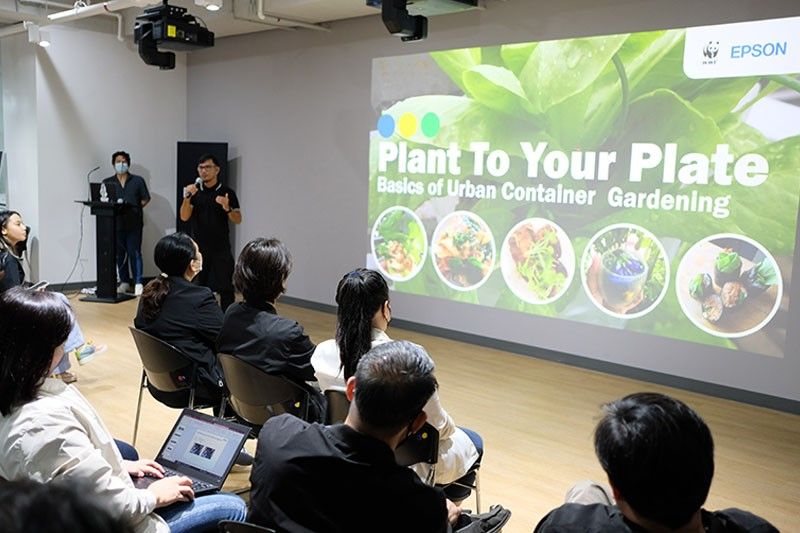Urban gardening answer to hunger, food inaccessibility

MANILA, Philippines — Urbanization significantly changes the face of Philippine towns and cities.
What used to be vast fields and farmlands in traditionally recognized agricultural provinces and towns are disappearing fast and giving way to urban developments such as malls, commercial complexes and residential communities. This is seen in areas where highways and expressways have been built.
There is now a lack of farmlands for crop production, and the younger generations in traditional farming communities now prefer to migrate from their rural homes to urban zones to supposedly elevate their status in life. In addition, primary availability and access to food are severely impacted with over 3.9 million Filipino families now experiencing involuntary hunger due to food inaccessibility.
Global technology company Epson said it espouses a stronger commitment to sustainability and protecting the environment, not only in its products but also in its initiatives that enrich communities. More recently, the company has shifted its focus to enabling the circular economy through upcycling and breathing new life into used materials.
To spur its commitment into action, it partners with like-minded organizations to further its eco-initiatives and contributions to a greener future.
Urban gardening workshop
Staring the problem of hunger and food inaccessibility in the face, the company recently partnered with World Wide Fund for Nature (WWF) Philippines to conduct an urban gardening workshop for the company’s employees.
The approach is like targeting the smaller picture to eventually hit the bigger picture. Facilitated by WWF-Philippines Sustainable Food Systems Project Manager Monci Hinay, the workshop aimed to educate attendees on the practice of urban gardening and showcase how people in urban spaces can benefit from urban gardening and sustainable food systems.
The participants were taught what urban gardening entails, such as what kind of crops produce the best yield at what time of the year. They also picked up important tips and basic steps in urban gardening, starting with site selection, seed sowing and seedling care, container selection, transplanting, as well water, fertilizer and pest control.
Before the workshop ended, the participants learned how to kick-start their gardening journey — from concocting their own natural pest control to utilizing companion planting.
Basics of urban gardening
According to WWF-Philippines, the practice of urban gardening addresses one of the key pillars of food security, access to food, as well as the growing issue of household waste management.
The method involves growing produce in portable and modular planters in areas where agricultural spaces are not typically available, such as cities and urban centers. Urban gardening enables the cultivation of crops in compact areas and vertical structures, akin to hydroponic technology, at a more affordable cost.
Additionally, urban gardening combats another growing problem: single-use plastics and plastic pollution. The practice gives life to potential waste products such as old plastic bottles, conveniently turning them into miniature planters that can fit in any space.
“What we’re doing right now is part and parcel of the solution because as we speak, a lot of our fellow Filipinos are experiencing hunger and malnutrition,” said Hinay. “We hope more people start to practice urban gardening and pass these methods forward so that we, as a community, can begin to address these growing issues surrounding food and food security.”
The urban gardening workshop, while highly informative and engaging, is just the first step in addressing the food crisis from an individual level. Epson, together with WWF-Philippines, hopes to roll out more eco-initiatives to educate and inspire individuals to practice the method and embrace their roles as stewards of sustainability.
“Our efforts and eco-initiatives represent our simple contribution to Epson’s global environmental goal of becoming a pioneering company that employs its effective, compact and precise technologies to achieve a sustainable future,” said Masako Kusama, President and Director of Epson Philippines. “We are glad for our growing partnership with WWF-Philippines, and all the opportunities that will help put our commitment to sustainability into practice.”
RELATED: ‘Farm along da riles’: Tondo youth marry urban farming and bayanihan for food security



















